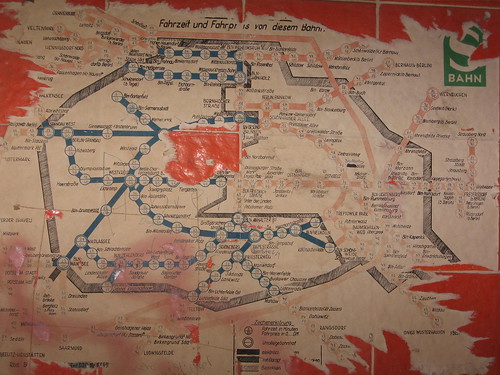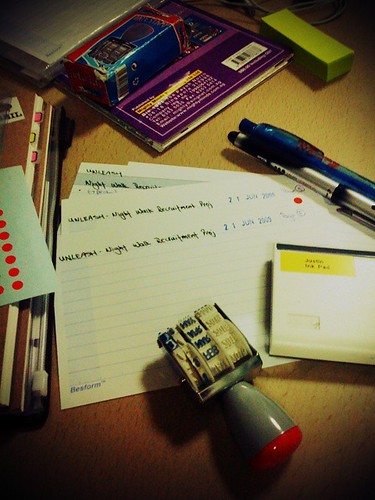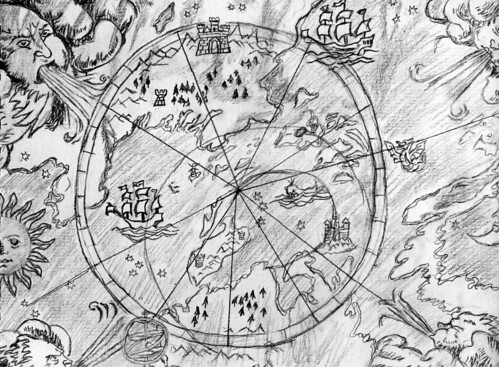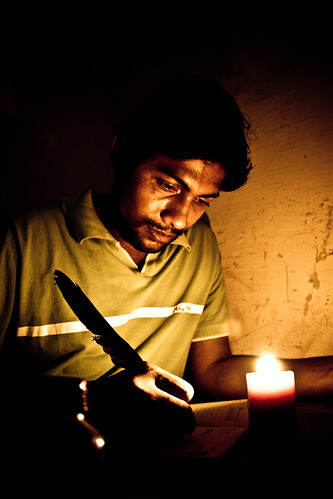The eternal question (well, one of them, anyway): how much planning should you do before you begin to write?
Obviously, this depends a lot on a) what kind of writer you are; and b) what kind of thing you are writing.
Some writers can’t start ‘actually writing’ until they’ve exhaustively planned every last detail and diagrammed it all out, with every detail of their characters’ lives already known. (This can result in gratuitous prequels – I am looking at you, George Lucas.) If you dream of index cards and colour-coding, you may be this kind of writer.
Others just let it all bubble away in their heads until the time is right. Isabel Allende, for example, always starts writing her books on the same day of the year – an approach that would drive me batty. If you take this approach – well, you have a better memory than I do.
Others just leap in there and figure it out as they go. This tends to result in a very… catholic first draft, in which both beginning and end can seem to belong to different works from the middle.
I’ve just realised that I hate (strong word – perhaps feel very uncomfortable with) not knowing where I’m going – or at least where I’m up to. With no plan, there is little to measure progress against. Which is depressing. Call me a feedback-hound, but without encouragement of some sort my motivation to keep going rapidly dwindles.
On the other hand, if I plan too completely (or concretely) I lose all motivation to write the blessed thing – there is no element of discovery, no reading the tale as it unfolds.
Now, as previously mentioned, this is also affected by what kind of thing you are writing.
Prose, I find can be happily wallowed through until you get to the other end and find out what it’s turned into. Then the rewriting begins.
Scripts – particularly for the screen – need a lot more structure. (Unless you are an avant-garde script-writer, in which case you get to make up your own rules but largely have to pay for them yourself.) There is the oft-mentioned board (ideally pinned, but more often floored), on which is plotted out the course of the story, in varying levels of detail.
Poetry, I suspect, requires a balance of the two. Or it might be that this form is the most dependent on the person writing. I usually just went for it in the beginning, with whatever inspiration came to hand, and then shaped the rest around that, although I don’t know that I’d recommend it as a poetic approach. (Thoughts?)
At the moment, my Works In Progress include mostly scripts (stage and screen) and one novel, which is the WIP I’m actually W’ing on.
I tend to try planning everything out ahead of time with the scripts, which sometimes works and sometimes doesn’t.
One of my stage scripts can be redrafted mostly from the first draft (plus new material); the other will want new plans drawn up. It’s like the difference between building an addition and doing a complete rebuild with recycled material from the original structure.
The film script is still very much in the early planning stages – more blueprints than actual building at this point.
With the novel, I have a rough structure in mind – a sketch map, in fact – but I don’t actually know exactly what I’m doing with it, or how long it’s going to take. I am, in fact, making it up as I go along.
Entirely new characters show up and demand to be included. Simple places turn out to be complicated little worlds of their own.
It feels like it’s taking forever, but at least when I reach the end everything will be in there. Although I may need to do quite a bit of retrofitting.
But here’s the hard part: I am a structure junkie.
Vladimir Propp did not appear on this blog by happenstance. Three act structure, five act structure, the Hero’s Journey – if there’s a pattern, I want to know about it.
But I think sometimes (all right, often) I use it as a means of procrastination – of abdicating responsibility. The structure will tell me what ought to happen next, and which roles need to be filled, and then I won’t have to work it out the hard way, by actually writing the thing, and finishing it, and then going back and thinking no – that shouldn’t be there, and this should be over here, and why are so many people doing this and no-one doing that?
So there is my struggle. Bit by bit I must bring this thing into existence, and not know til the end (if then) how malformed and lifeless it may be, how much of my work, how many dark mornings and weary evenings, must be cut away and cast off like excess clay from a sculptor’s model.
“We work in the dark – we do what we can – we give what we have. Our doubt is our passion, and our passion is our task. The rest is the madness of art.” Henry James






